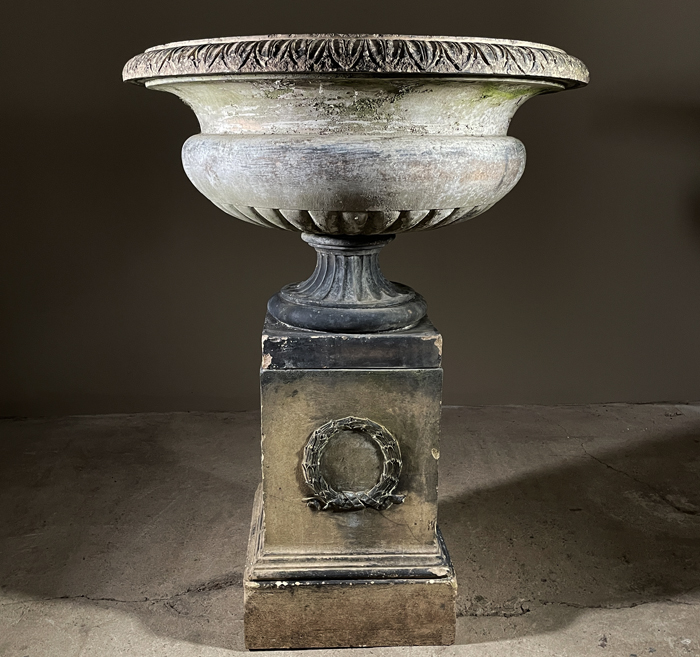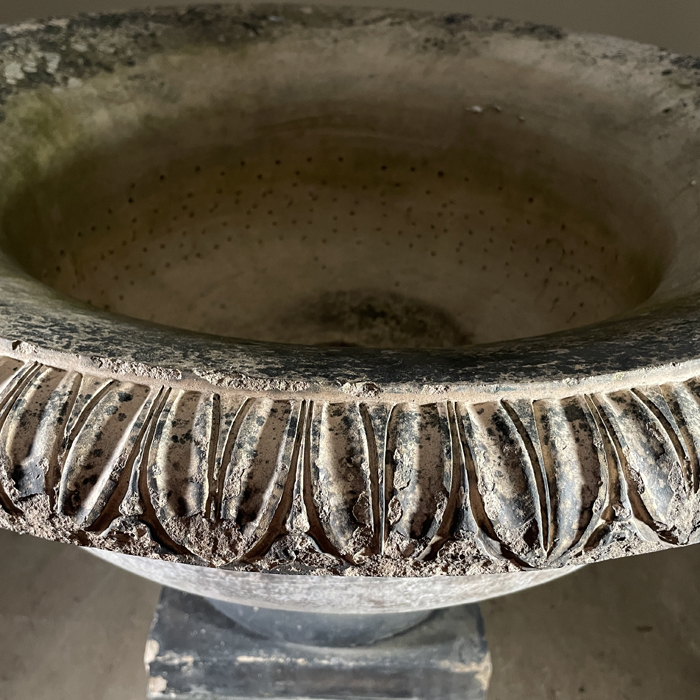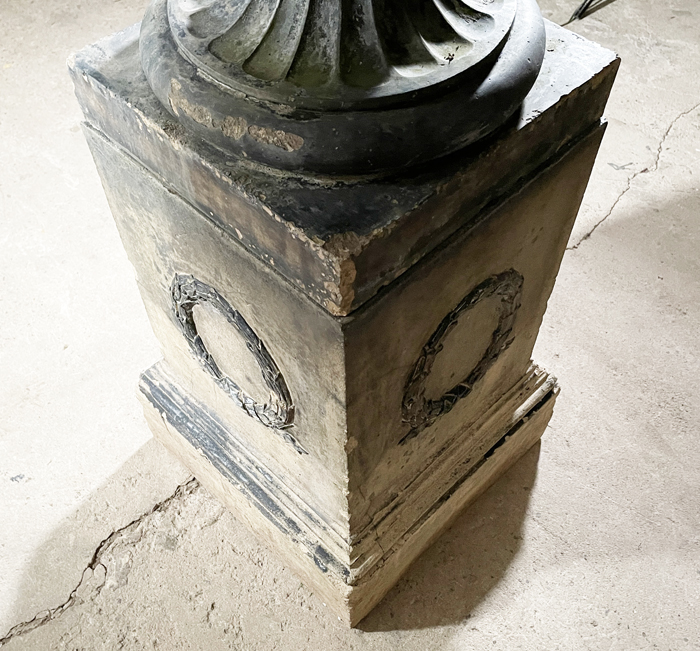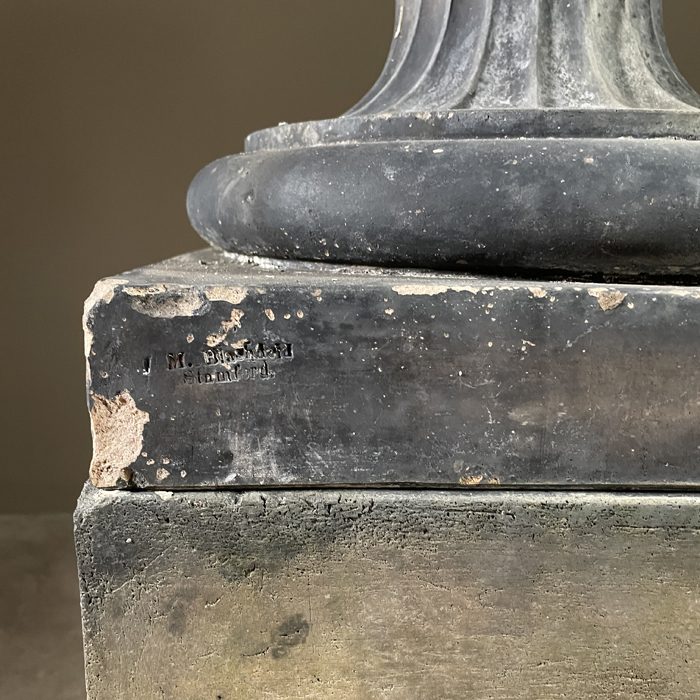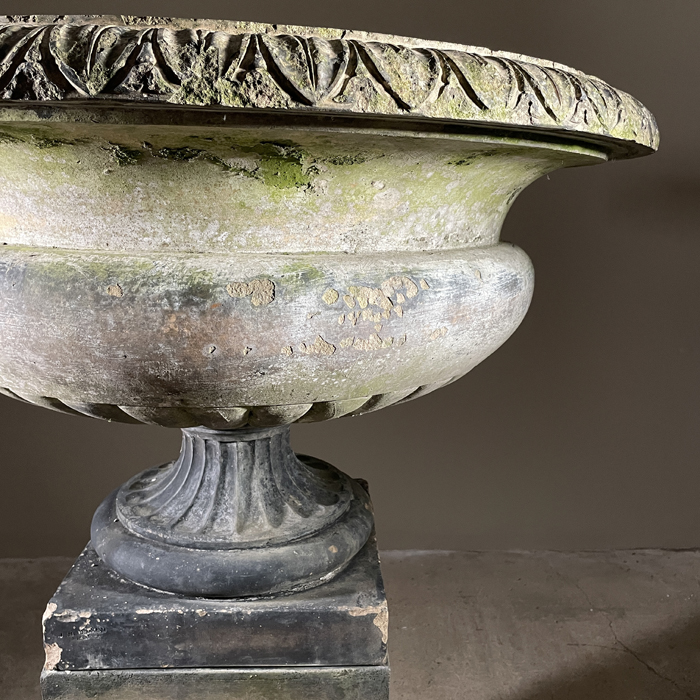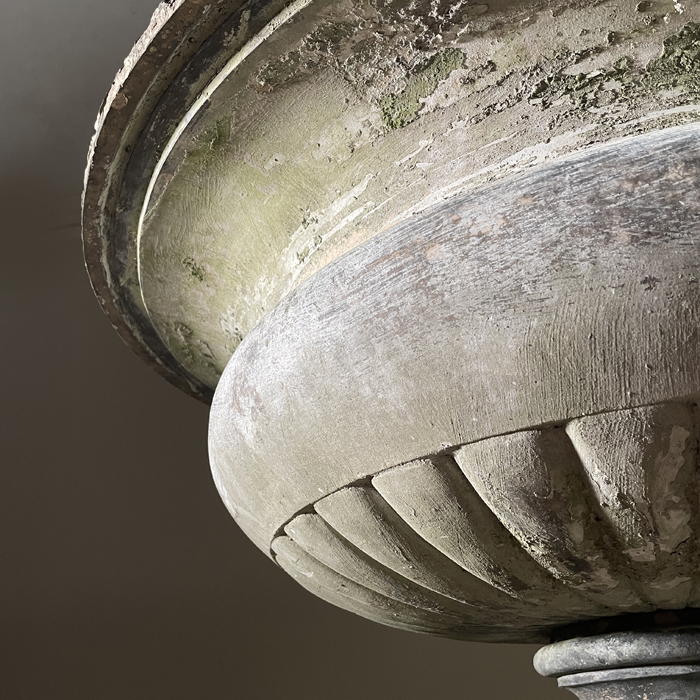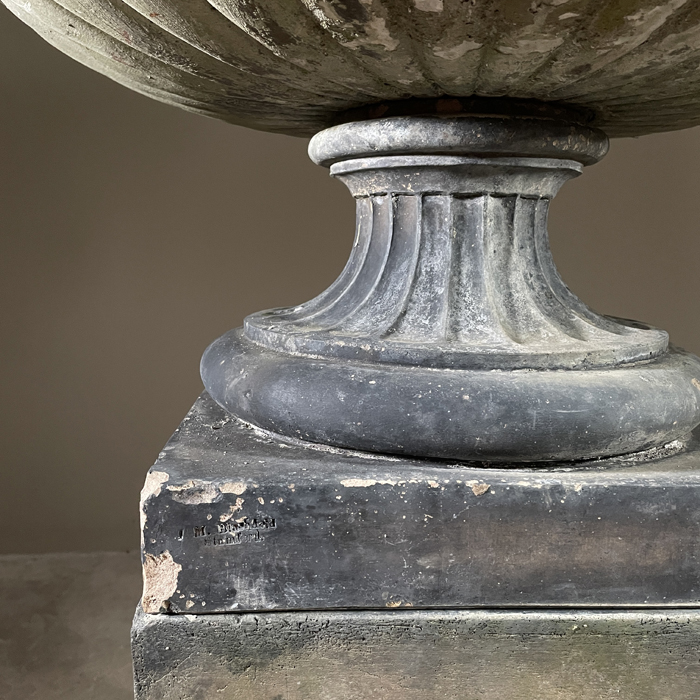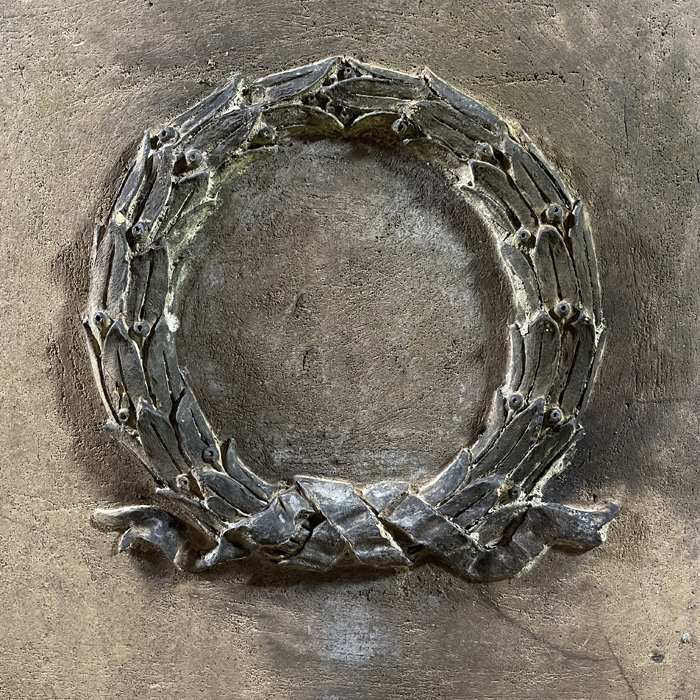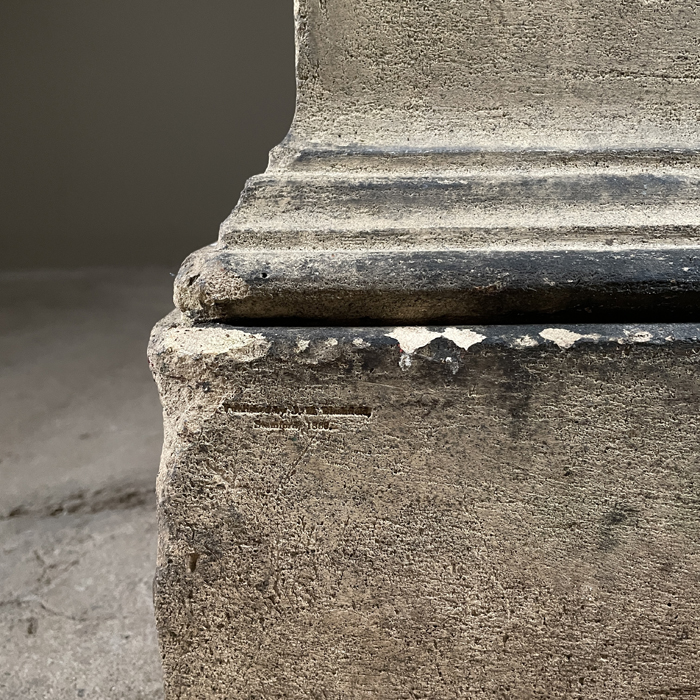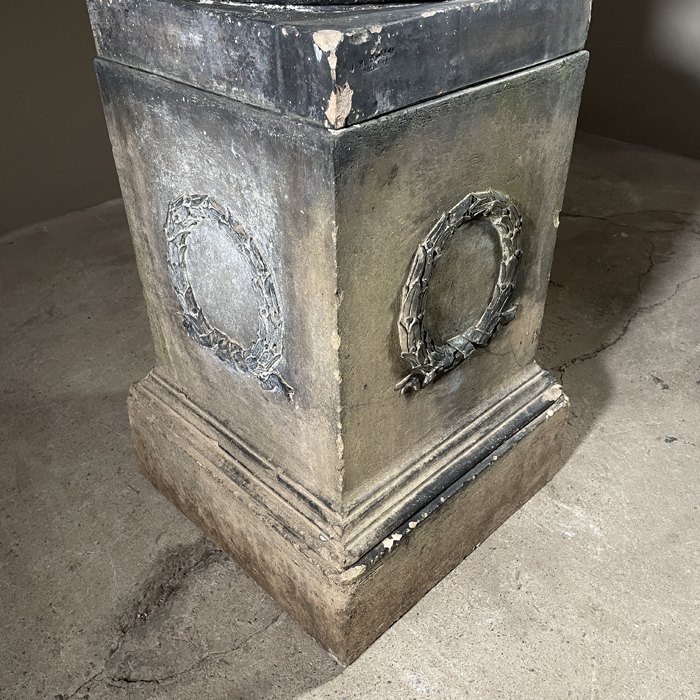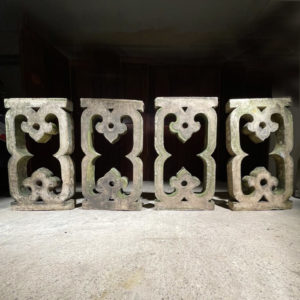An Impressive mid-Victorian stoneware garden urn
the bulbous tazza with an everted rim raised on a socle foot, above a square section pedestal with a relief-cast wreath to each side, bearing the maker's mark to each element,
£8,900
John Marriot Blashfield 1811-82 was an entrepreneurial Victorian businessman whose eventful and inventive career included the manufacture of wonderful stoneware garden ornament such as this garden urn. He had started out in the manufacture of terracotta, scagliola and cement mosaic pavements from a sizeable yard on the Isle of Dogs – an extant business he had bought-out in the 1840’s (his, for instance, was the hallway mosaic floor at The Conservative Club in St. James’ St).
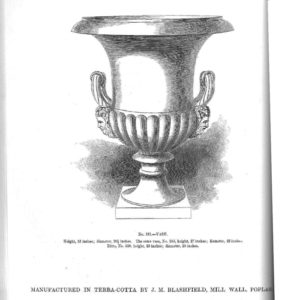
He was long associated with, and influenced by, Owen Jones. He was diversifying the factory’s output and, being familiar with the last years of Eleanor Coade’s business that had been bought-out and become “Croggan” by the time of its demise in 1833, looked to prevail on that growing market. His architectural stoneware and garden ornament operation expanded. By the time of the Great Exhibition he had a showroom in Praed St in Paddington – and having seen Mark Blanchard’s wares at the Exhibition spurred him on and lead to a commission to create the set of colossal statues by John Bell for the Crystal Palace when it was repositioned on Sydenham Hill in 1854 (later destroyed in the fire). His products have long been compared to those of Coade.
Blashfield had taken on the development of Kensington Palace Gardens in the 1840’s – prime land adjacent to Kensington Palace. Ultimately he got his fingers burned, his property company went bust, but the terracotta works prospered. He published a number of catalogues through the 1850’s and was employing dozens of men.
In 1859 Blashfield made a big move – he took the entire manufacturing business from the Isle of Dogs, north to Stamford in Lincolnshire in order to be proximate to the best clays that he needed for his kilns. He had bought Grant’s Iron-works that had a wharf on the River Welland.
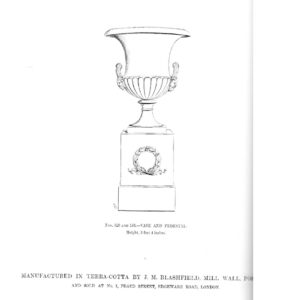
Whilst the relocation seems to have paid-off, in the 1860’s Blashfield over-stretched himself with attempts to expand his markets into the United States. The costs of shipping was making the operation unprofitable and continual breakages were delaying payments – notably for architectural embellishments for new Museum of Fine Arts in Boston. The Stamford Terracotta Company – as it was then known – collapsed in 1874. Blashfield declared bankruptcy in 1878.
The stamps citing Stamford dates this piece to after the 1859 move to Stamford when the stamp changed. Sure enough the design for it is illustrated in his 1857 brochure “A Selection of Vases, Statues, Busts, & c. from Terra-Cottas. Plates, with an introduction. Published by John Weale, 59, High Holborn”. The urn and pedestal were available for supply together and separately and in different sizes.
The pricked holes to the interior were almost certainly to enable the expansion of gas from within the bulbous thicker wall of the urn to protect against explosion in the kiln.

